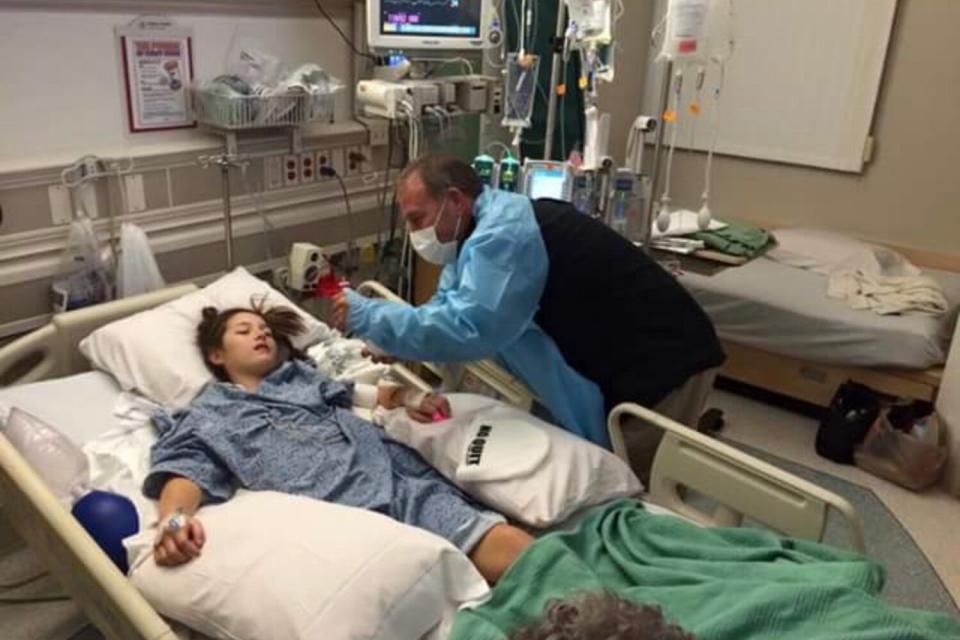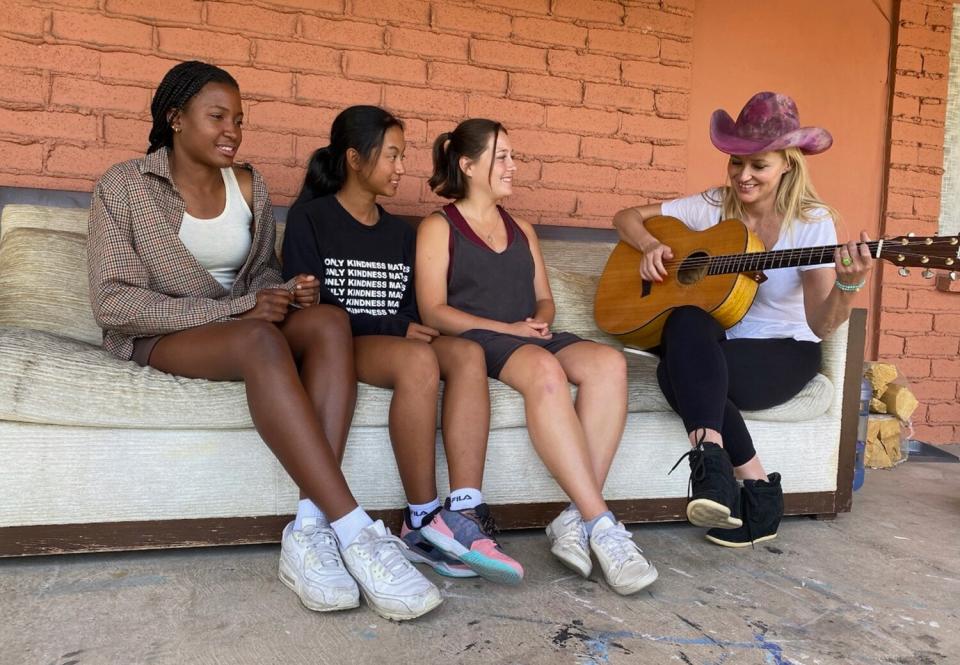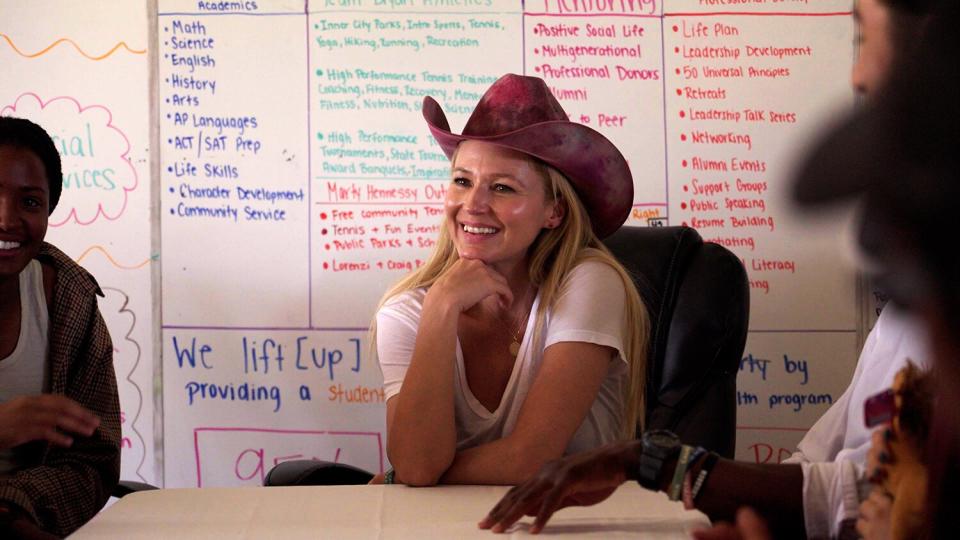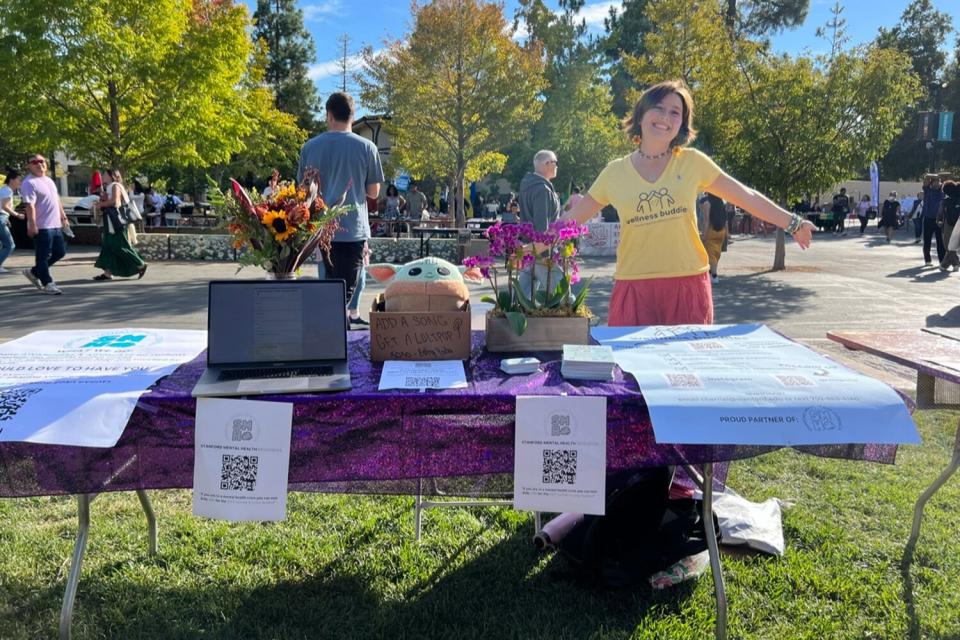Suicide Attempt Survivor Shares How She Took Charge of Her Mental Health — and Now Helps Others Do the Same

Paige Nuenshwander
Cherrial Odell was only 13 years old the first time she tried to take her own life.
"I grew up in a chaotic home environment in Las Vegas, where both of my parents struggled with addiction and their own mental health," she tells PEOPLE. "I had depression and anxiety and didn't have guidance on how to deal with all the emotions that came with that."
One night with friends, she took a bunch of pills prescribed for her migraines with the intention of ending her life. "I was young, and just assumed you take a bunch of pills, you fall asleep and you don't wake up," says Odell, now 22.
But she did.
"I woke up thinking, 'Why am I still here?' And I was sad that it didn't work."
Her second attempt a few months later landed her in the hospital, where her parents were told she wouldn't make it through the night. "I was in respiratory failure," Odell says. "They told my parents to call a priest."
Miraculously, she pulled through.

Ryan Wolfington
After her suicide attempts she enrolled in a program at Inspiring Children's Foundation, a nonprofit co-founded by Jewel dedicated to transforming the lives of at-risk youth in Las Vegas through a whole human approach to physical, emotional and mental health.
"Jewel and Ryan [Wolfington], the co-founders of the program, became really close personal mentors of mine and introduced me to mindfulness and meditation and all kinds of different wellness practices," Odell says. "They gave me a safe environment where I could go to really invest in my own healing and growth and learn how to deal with my emotions and my relationships with my family and myself."
RELATED: Andy Grammer Loves Therapy: 'People See Me as the Happy Guy' but 'We All Need Help in Some Ways'
Odell started using practical tools take control of her mental health. "Just realizing, 'Okay, I have all these thoughts and feelings, and sometimes they feel really strong and overwhelming or upsetting or really dark', but I'm separate from my thoughts and feelings," she explains.
"And something that Jewel says — and I really like the way she words it — is, 'If I can observe my thoughts and feelings, I must be something other than those feelings.' I can't necessarily choose whether these negative thoughts and feelings come to me — that might be out of my control — but I can choose how I respond to them."

Ryan Wolfington
Through her program at the Inspiring Children's Foundation, Odell learned to foster a more holistic approach to her mental health. "I think mindfulness, meditation, journaling, yoga, sleeping well, eating nutritiously, all these seemingly small things have such a huge impact on how I feel, and my clarity and ability to create space for my thoughts and feelings," she says. "The Foundation really helped me ground myself in fundamental self-care tools, such as get eight hours of sleep or don't eat a ton of processed foods and sugar."
As Odell progressed through the peer-led program, she started doing her own peer-to-peer counseling while working on self-healing. She stuck with the Foundation through high school and beyond, interning with the program for two gap years. She was accepted to Stanford University, where she has been transforming the curriculum she learned from the Foundation into a college club called Wellness Buddies. "I've been doing a lot of mental health work at Stanford with all the practices that I learned through their program," she says.
Jewel, who was homeless as a teen after escaping a rough home life and even lived in her car as a teenager before her singer-songwriter career took off, knows how important it is to spread this knowledge.
RELATED: Jewel Explains Why She Prioritized Mental Health Over Fame: 'I Didn't Want to Have a Breakdown'
"I moved out at 15, and I knew that statistically kids like me end up repeating the cycle. And I didn't want to be a statistic, but there was really no safety net for someone like me. I didn't have money for therapy or traditional help. I didn't even really have a family system that would support me or could," she says.
"And so I had to set about putting together skills and tools on my own that took me a lifetime to learn. And I wanted to see if these tools could work for other kids that were like me that didn't have access. Not everybody has access to therapy, and misery is an equal opportunist in the sense that it doesn't care if you're a CEO or famous or poor, what color or socioeconomic background you come from.

Jewel/Inspiring Children Foundation
"It really has a lot to do with family systems. But if you want to learn to be happy, that takes an education, and education costs money. And suddenly, happiness can be elite, and that's unacceptable. So what we set out to do 21 years ago with Inspiring Children was to see if we could find systems and ways to help people that were like me, that had complex trauma or even just general anxiety, and see if we could make a meaningful difference."
Inspiring Children's Foundation is just one of 5 nonprofit organizations that have come together with education company Chegg for the first-ever Global Student Mental Health Week, which features 7 days of mental health offerings on campuses to promote well-being for students. It runs from Feb. 6- Feb. 12. The inaugural global initiative, which Chegg plans to run annually, seeks to destigmatize mental health among students, encourage young people to be intentional about looking after themselves, and inspire conversations around what policymakers, education institutions, the wider community, parents, and learners themselves can do to support student mental wellness.
RELATED: Student Who Suffered Panic Attacks Helped Pass a Law to Get Kids Mental Health Days
Odell is leading Student Mental Health Week at Stanford, which includes small and large-scale events, from making sure students are aware of mental health resources on campus, to collaborative chalkboards and posters, to a Student Stories event where people are invited to share their struggles and healing processes through spoken word, music or poetry.
"My goal is to help people feel comfortable and open to sharing their experiences, but also to know that it's healable and that you can find happiness," Odell says. "There's all these tools and resources and things that can help you heal. It's not a death sentence."

Brynne Malina
Jewel emphasizes the mental health crisis that is plaguing young people today.
"Mental health is abysmal on these college campuses," says Jewel. "Kids are deeply, deeply depressed, there's lots of suicidal ideation. We're losing kids that are superstars in these colleges. We really have to find solutions for our college campuses, and I'm really proud that our kids are going into these environments and that companies like Chegg are making this a real priority and helping support these kids through Student Mental Health Week."
"Nearly one-third of students worldwide say that their mental health is worsening since they're returning to campus," Jewel says. "This is a massive issue. We can't ignore it. We have to offer solutions that are beyond raising awareness. That's where my foundation's really focused. And to find partners like Chegg who care. What point is it if our kids are getting straight A's if they don't want to live?"
In addition to Inspiring Children, the other organizations partnering with Chegg to bring this initiative to life are Born This Way Foundation, launched and led by Lady Gaga and her mother, Cynthia Germanotta, which supports youth mental health; the Jed Foundation (JED), which protects emotional wellbeing and prevents suicide for teens and young adults; Young Invincibles, which leads advocacy efforts centered on improving the lives of young adults and increasing their access to mental health services; and the Varkey Foundation, which looks to improve the quality of education for every child by building the status of teachers around the world.
If you or someone you know is considering suicide, please contact the 988 Suicide and Crisis Lifeline by dialing 988, text "STRENGTH" to the Crisis Text Line at 741741 or go to 988lifeline.org.

 Yahoo Finance
Yahoo Finance 